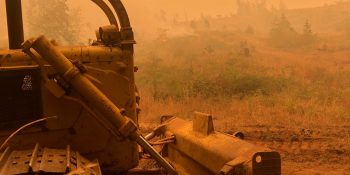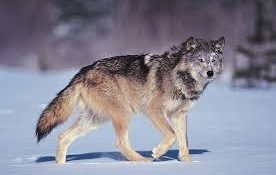DENVER, Colo. —The Rocky Mountain Elk Foundation (RMEF) has joined Coloradans Protecting Wildlife (CPW), a coalition formed to fight a ballot measure that will be decided in the November 2020 general election. The measure would force the introduction of wolves along Colorado’s Western Slope.
“This initiative is a reckless and dangerous approach that circumvents Colorado’s wildlife management authorities at Colorado Parks and Wildlife who have affirmed multiple times over the years that we should listen to the science and not force wolves into Colorado,” says Blake Henning, Chief Conservation Officer at RMEF. “Outdoor enthusiasts, sportsmen, farmers and ranchers, and many residents will be negatively impacted if this proposal is successful. Not to mention the millions of taxpayer dollars it will cost to implement.”
The 2020 initiative would ignore long-standing scientific processes, research, and expert guidance by forcing the introduction of wolves into Colorado without any analysis of the potential negative impacts on Colorado’s environment, ecosystems, or its citizens.
“Anyone who appreciates Colorado’s quality of life and natural beauty should be concerned by this proposal,” warns Henning. “Colorado is nationally and internationally renowned for its successful wildlife management. Introducing a new apex predator like the wolf will dramatically impact the state’s ungulate populations. Fifty-four of the state’s 64 elk and deer units that are under objective are in western or southwestern Colorado.”
As responsible stewards of the land, various stakeholders have previously worked with Colorado Parks and Wildlife to develop a “free-ranging” wolf plan, including necessary management strategies to ensure gray wolves that enter Colorado from other states are protected yet do not endanger animals or people that they may come in contact with. This plan is working as evidenced by the recent confirmation of a wolf pack living in northwest Colorado that migrated here without human intervention.
By supporting CPW, RMEF joins a growing, robust coalition of stakeholders educating voters about the pitfalls of introducing wolves to Colorado’s landscapes. Trade organizations opposed to the initiative include the Colorado Farm Bureau, Colorado Cattleman’s Association, Colorado Wool Growers Association, Rocky Mountain Farmers Union, Outdoor Channel, Colorado Mule Deer Society, Hunter Nation, Big Game Forever, Colorado Traditional Archers Society, Colorado Bowhunters Association, Four Corners Chapter of SCI, Colorado Outfitters Association, Bull Basin Guides and Outfitters, Code of the West Outfitters, Hunt 360, Colorado Independent Cattle Growers, Southwestern Colorado Livestock Association, La Plata-Archuleta Cattleman’s Association, Gunnison, Eagle, Garfield, and La Plata Colorado Farm Bureau boards, as well as Alamosa, Archuleta, Cheyenne, Crowley, Douglas, Fremont, Garfield, Hinsdale, Jackson, Kit Carson, Las Animas, Lincoln, Mesa, Moffat, Montezuma, Montrose, Otero, Rio Blanco, Rio Grande, Routt, and Weld counties.
Together, these groups are urging voters to vote no on forced wolf introduction and leave species management up to wildlife biologists and the relevant state and federal agencies.
For additional information about Coloradans Protecting Wildlife, please visit: www.RethinkWolves.com.
SPREAD THE NEWS
COMMENT, Like, Follow & SHARE @I70Scout


